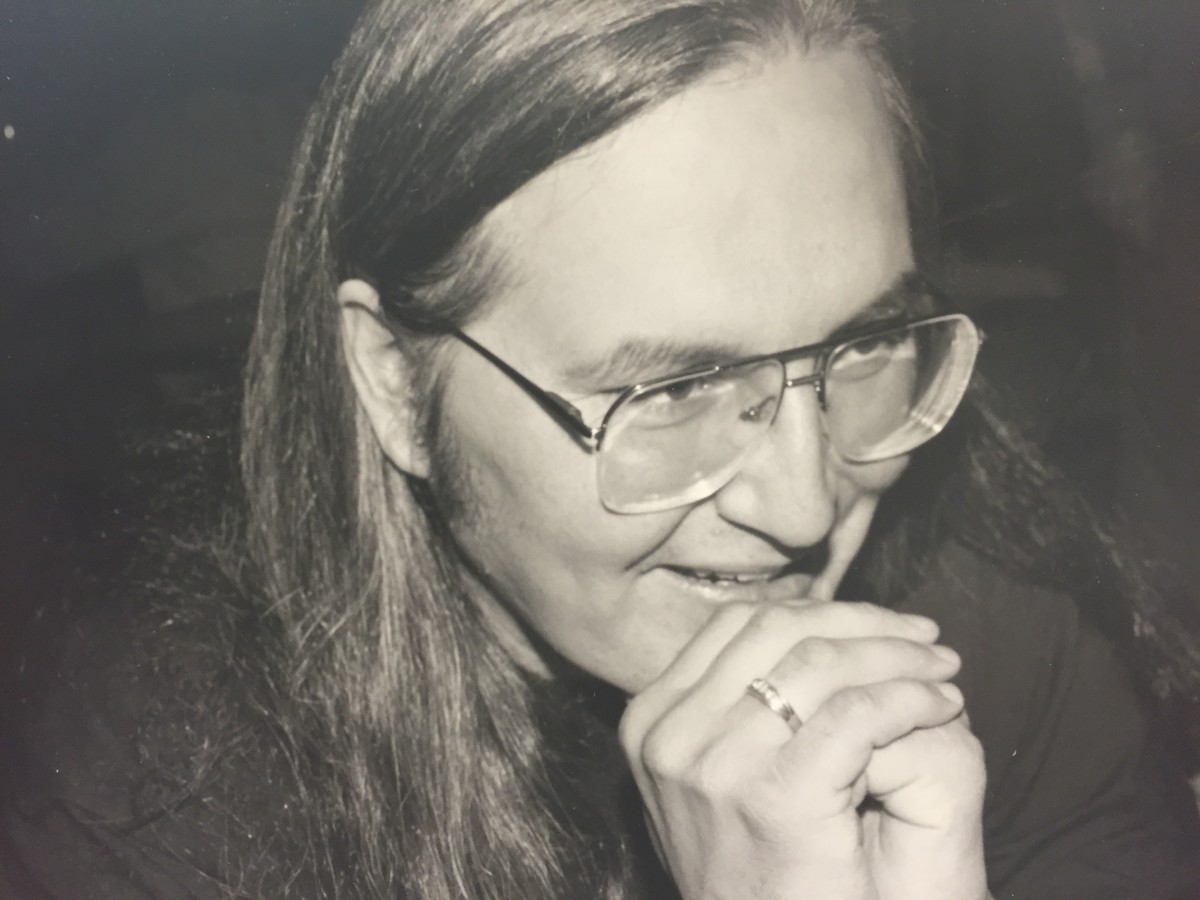
Photo from Ian Ross’ personal fonds. (U of M Special Collections and Archives)
Ian Ross – In his own words
Ian Ross is a consummate storyteller able to unfurl oceans of serious and humorous stories to immerse audiences.
His work includes fareWel, which won the Governor General Award for English Drama in 1997, The Gap, Heart of a Distant Tribe, Baloney!, Bic Off!, Bereav’d of Light, Fabric of the Sky, An Illustrated History of the Anishnabe and his popular “Joe from Winnipeg” character, which ran for several years on CBC Radio and Television, and led to two books, Joe from Winnipeg and The Book of Joe.
With his latest play Doubtful House inaugurating the grand opening of the John J. Conklin Theatre within the renovated Taché Hall, Ross [BA / 92] spoke on the transformative powers of art, along with support from students and faculty within the theatre department.
In his own words
This play, Doubtful House, is a part of a trilogy. I was always fascinated by a cycle of plays…so this play is the first one. Manitoba House is the next play and the third play is called A New Nation. In some ways they’re about Canada to me – about our nation. Because this is the thing we forget –we’re still a young nation, relatively speaking. But the thing I’m impressed with about Canada is yeah, we make mistakes, we’re not perfect, but we don’t seem to give up. We keep trying. So, I’m hopeful, but that’s me by nature anyways.
Don’t forget where you come from, which is also the message of Doubtful House. The character of Raymond, who has the name of my father, says all people have to do is look at what’s under their feet – the land, all of it.
I feel like this play has brought me back. Believe it or not, I feel now at 47 that I’ve become a better writer. I was 25 when I wrote fareWel.
I would contend Winnipeg has just as rich, if not richer, arts scene than Toronto, Montreal, Vancouver. It’s vital to us.
Art can change you for the better like nothing else.
When I won the Governor General’s Award, I was informed that I was the first Aboriginal person to win one of those awards in over 50 years across any genre…it only happened because of the University of Manitoba, because the arts were supported.






